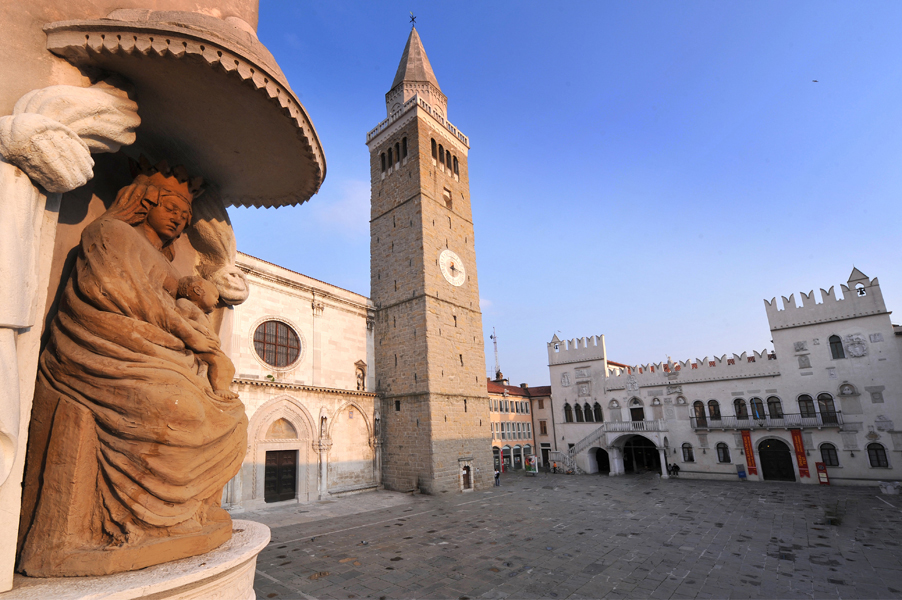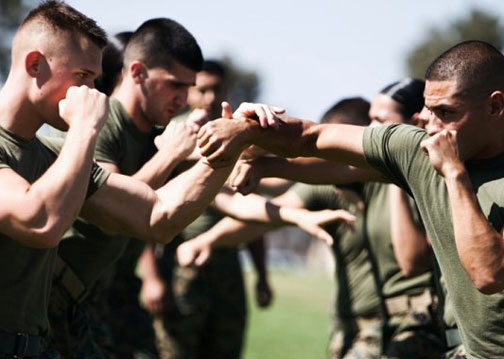There is a perception that “education” involves stuffing one’s head with facts and information. What passes for male education these days is a sad mockery of the word, for it places far too much emphasis on intellectual development and attaches too little importance to the training of character. The cultivation of leadership qualities in men is a critical component of character building, and yet the idea that it should be taught systematically has nearly vanished from organized education.
One could argue that what young men today lack the most is vigorous training in character and leadership. Instead, curricula have been inundated with political correctness, timidity, gender sensitivity, and concerns for not hurting women’s feelings.
Many of the modern man’s problems—unrelenting simping, lack of inner game, lack of confidence, catty behavior towards other men, dissipation of focus and intensity, weakness of mind or body—can be attributed to the gross deficiencies of our educational system, as well as to the complete lack of mentorship for young men. It was not always so. This article will discuss the educational views of an influential Italian humanist named Pier Paolo Vergerio as expressed in his treatise The Character and Studies Befitting a Free-Born Youth.
Born in 1370 in Capodistria (what is today the city of Koper, in Slovenia), Vergerio taught rhetoric and law in Padua, Florence, and Bologna, and served for a time as an advisor to the Holy Roman Emperor Sigismund. His educational essay for men, composed around 1402, is a near-perfect summary of the Renaissance idea of education for young leaders. It was published numerous times in the following centuries, and had considerable influence. It is a pity (though not surprising) that it is not more widely known today. For nearly alone among his contemporaries, Vergerio was a firm proponent of the idea that everyone has different talents, and that an educational program must be adapted to each student’s strengths and weaknesses.
Bird’s eye view of Vergerio’s birthplace of Koper, in Slovenia.
I have culled Vergerio’s main points from his essay, and present them below. I then offer my own comment.
1. Education in character begins in the cradle. Parents should pick a name for a boy that is not “unseemly” or clownish. The correct choice of name is a matter of high importance, despite the cavalier manner with which most women treat it. Names can affect character and influence the career choices for men, and nothing is worse than being saddled with an oafish name.
2. Parents should settle their sons in “renowned cities” (in egregibus urbibus). Few opportunities will be found in the middle of nowhere, and men need the company of other good men to develop themselves.
3. Although training in the liberal arts should start at an early age, parents should take care to direct sons to those studies for which they are naturally inclined. Compulsion in education is something that should be used in careful moderation.
4. Body and mind are connected intimately. Just as a healthy body consumes and digests food well, so a healthy mind will not scorn anyone, but will put the best interpretation on what it hears or learns.
5. Young men should look at themselves in the mirror often. There is nothing wrong with this, and it serves a useful function. Those with a fine appearance will not dishonor themselves with vices, and those with an average or ugly appearance will strive to make themselves more attractive with their virtues.
6. Young men are generous and open-minded by nature because they have rarely experienced want and need. They are also credulous, due to their lack of worldly experience. Their opinions can change easily and quickly. They take great pleasure in their friendships and love the clubs they belong to, which they often “join and abandon on the same day”. Leadership instruction must be given while taking into account these qualities.
7. Every age of a man’s life has vices particular to it: adolescence “burns with lust”, middle age is “rocked with ambition”, and old age “wastes away in greed”. Not everyone is this way, but men are more inclined to these vices according to their age.
Another view of the city of Koper.
8. Young men must be taught from an early age to treat the elderly with “profound reverence”. Much can be learned from a young man’s associating with an older man. So Roman youth treated senators and other older men, thereby learning much about perseverance and patience.
9. Young men should learn right away the value of being constructively criticized and admonished. This is necessary for personal improvement. People who don’t listen to anything they dislike are “the ones most vulnerable to deception”. The weak stomach is the one that “will only accept delicacies.”
10. Excessive leniency can corrupt a young man. Women are unsuited to the task of training a man for male leadership. Those who have been “brought up in luxury under widowed mothers” display these negative traits most openly. However, this problem is easily corrected provided the proper male role models appear, one way or another.
11. The finest studies for leadership are those based on arms (military) and letters (history, philosophy, languages, and rhetoric). Everyone wants to be learned in old age, but to achieve this one must start early and exert “zealous effort”. Being learned in letters and arms will provide a remedy against “sloth” and solace in the face of worry and stress.
12. The ancient Greeks trained young leaders by teaching letters, wrestling, music, and drawing. This sort of regimen gave them appreciation for the “beauty and charm of things both natural and artificial”. “Great men”, he says, “need to be able to talk among themselves and make judgments about matters of this kind”.
13. Good disciplines to know also are literature, in that it forms good habits of virtue, and strengthens the memory by study. Rhetoric (the art of eloquence) and disputation are required also for being able to verbally spar with opponents in the inevitable contests that will confront any leader. Poetics is good for relaxation, mathematics and the sciences good for logical development, and languages for getting outside oneself.
14. Don’t just dip into any authors. Surround yourself only with the very best. By keeping company with great men, we will learn greatness by association. The most important quality in education is hunger: that fanatical desire to learn and better oneself. Some students have it, some do not.
15. The easiest person to deceive is ourselves, and no one who is damaged more than ourselves by such deceit. Young men must confer often with peers and guides, so as not to form an inflated opinion of themselves.
16. The training of the body is of paramount importance. It should be conditioned from a young age for rigorous service, military ability, and endurance. Young men should be hardened from a young age to endure pain and discomfort of all sorts, so that they are not broken by the strains of life and struggle. They should also be taught to “dare great things”. The Cretans and Spartans valued hunting, running, wrestling, and jumping, and sought ways to train themselves to endure hunger, thirst, cold, and heat. Luxuries weaken the mind and body.
Cultivation of the martial virtues is an essential part of leadership training.
17. In a great quote, Vergerio reminds us that “Every period of life has the capacity to yield something splendid.”
18. The youth should set fixed hours for bodily exercise every day, and fixed hours for the exercise of the mind. Strict self-discipline is critical. The emperor Theodosius, he notes, would engage in military exercises or legal judgments by day, and by night would apply himself to his studies by lamplight.
19. Since battle tactics are constantly changing, a forward thinking youth will attempt to master the martial arts and self-defense arts of his day. This should include mastery of weaponry, personal combat skills, horsemanship, and movement over rugged terrain carrying heavy loads or equipment. There are many different kinds of combat. “For things are done one way in a melee; another when the decision rests on a battle formation; another when there is an infantry charge, and another when combat takes the form of a duel.”
20. Expect often to be unfairly judged. Generals get the praise for the valor of their soldiers, but also get scorn for their shortcomings. “The glory that comes from good deeds is unequal to the shame that comes from mistakes”.
21. Learn to swim well. It greatly increases confidence.
22. Rest and leisure is of vital importance. Hunting, team sports, and fishing “refresh the spirit with great delight, and the movement they require fortifies the limbs.”
23. Dancing and cavorting with women is also essential, and there is a “certain profit in doing them, since they exercise the body and bring dexterity to the limbs, if they do not make young men lustful and vain, corrupting good behavior”.
24. From time to time, however, “one needs to do absolutely nothing and be entirely free from work, so as to meet once again the demands of work and toil. For the muscle which is always stretched taut usually breaks if it is not sometimes relaxed”.
25. Grooming the body is critically important. The end result should be neither “too fastidious nor too slovenly”. Excessive focus on grooming is “a sign of a feminine mind and a proof of great vanity”.
Final Thoughts
All in all, this advice is an excellent program for training in leadership and character. For a short treatise, this little work can scarcely be improved on. Vergerio’s counsel was directed at individuals, but we should note that masculine virtue does not exist in isolation. It thrives only when certain conditions are met. From my own study of history, the following conditions must be present in order for masculine virtues to find a healthy presence in a society: (1) institutional support from some sector of society, such as the military, an organized religion, or mercantile guilds; (2) the existence of fraternal societies, such as guilds or military orders from which women are excluded; and (3) mentors willing to instruct young men.
Unfortunately, none of the conditions needed for the cultivation of masculine virtue are present in modern America. Institutions that once nurtured it have been marginalized or destroyed, and mentorship is now a purely hit-or-miss affair.
But the seeds of our resurrection have been planted, and are slowly germinating. We do have control over ourselves, and we can integrate elements of Vergerio’s program into the training of our younger brothers or sons. By training ourselves for leadership and the hardships of life, we serve as beacons of hope for younger men who have been left with no role models, no mentors, and little hope. For ourselves, and for them, we toil.
We sharpen our swords, and await the approach of our day.
Read More: Why Being A Loner Makes You A Great Leader





I always felt I should have chosen another name for my son Shemp. At least he has given up “veganism” and now eats meat.
Could be worse, your father could have named you “Sue.”
I struggled with “Elmer” for many years but realize now it has a certain cache’ about it.
I struggled with “Elmer” for many years but realize now it has a certain cache’ about it.
I struggled with “Elmer” for many years but realize now it has a certain cache’ about it.
If I ever have a boy, I think I’m gonna name him…after you.
My son will be named Gunnarr
So I sound my barbaric yawp.
Where can I get “The Character” and “Studies Befitting a Free-Born Youth.? I want to read them in full.
I so WISH us young men had better systems place for a holistic education. It feels like with out them so much time is wasted and I won’t reach my full potential because I need to piece it all together myself.
Great post, please keep them coming!
Vergerio’s treatise can be found in a volume titled “Humanist Educational Treatises”, published by the I Tatti Renaissance Library. Highly recommended.
http://www.amazon.com/Humanist-Educational-Treatises-Renaissance-Library/dp/067400759X
http://archive.org/details/vittorinodafelt01woodgoog
Incidentally, I attended Catholic school for 16 years and benefited from what I like to think of as a well-rounded education, at the hands of some pretty old-school, yet progressive teachers, both male and female. There was no feminism or political correctness back in those days (70s and 80s). I had science, mathematics, history, literature, art, music, physical education (especially recess). I was a bit hyperactive when younger, but was never medicated and eventually grew out of it.
Unfortunately, the downside of this, for me, was that it didn’t prepare me for the commercial life, especially the life that we have now, where it’s a minefield and here today, gone tomorrow job skills — along with increasing bureaucratization and HR shenanigans. This more than anything else, has been my bugbear. Never mind feminism and political correctness, and the ever-quickening degradation of culture.
In short, you could say that I was trained for a different time. It suited my temperament, but I still have to live in the world of today, regardless of how bad it is.
Yeah, I suggest linking to the treatise.
The state of education is a joke. Right now in New York the pols up in Albany have enforced a new test on the young that is much harder, without adequate preparation. Of course people are failing left and right and parents are pissed off. Standardized testing is but a regurgitation exercise, and it’s gotten much worse since my time, unfortunately. Of course my own time in the public school system was a disaster that almost doomed me, but that’s a long story, too long to share in a comment like this.
As for the article, why not have an article as to how to integrate this program for the modern world? Sure, the principles are important, but an entry about how to take them into practical action through certain activities would in my mind be equally as worthy.
Just a thought.
Since every man’s circumstances are going to be different, coming up with an individually-tailored program of action should properly be left to each person. As Vergerio believed, everyone’s educational program should be geared for his own strengths and weaknesses.
We can enunciate the principles, but it is up to each individual to exert the proper initiative to get things moving. The ideas outlined above provide a good starting point. If you can find an organization, a group of like-minded men, or a tutor/mentor to help you with these principles, that would be even more ideal.
The “The ROK School for Boys” ???
Would be fun to have “FU ” money and start an all boys school and teach this stuff.
I’ll pass the suggestion on to the boss.
I suspect he would find your suggestion very worthwhile.
Will be downloading if I don’t have to buy it. If I have to buy it, consider it bought.
It feels good knowing I have done much of this, yet looking back, there is still much to be done.
Good article. I agree too about the conditions that have to be present to teach men the important skills outlined we have quite a hurdle to overcome. I think that given the fact that feminism has infected the armed forces, and as well there are laws that do not allow exclusively male organisations (all while female only establishments are allowed to exist) any kind of male only organizing has to be done discretely and unofficially. Hell, the only place women are not allowed today is the public men’s toilet. I’m glad I can at least take a dump without a gaggle of harpies loitering in the room.
I’m glad I serve in an infantry unit, but it’s only a matter of time when females get fully integrated in there too.
By then I’ll be out of the Army.
A smart DWM (dead white male) said something like, “Education without ethics makes a clever demon.”
Whatever you do, don’t send your sons and daughters to public schools. It seems impossible for a complete, ethical man OR woman to be formed there.
I went to a boarding school as a child. Fortunately I managed to escape relatively unharmed.
Some people have no choice, but it’s the people and family around that provides adfitional education.
I learned a lot off of other peoples mistakes.
Holy fuck, this guy’s contributions get better and better.
Boy Scouts tries to do some of this, but it doesn’t go far enough.
Great article, great message!
Great article, great message!
This was probably the best article I’ve read all week.
Great post Qunitus! I have to say, as a young collegiate, a post like this is absolutely essential. I shall take your advice to heart.
About leadership training :
I went to an all-boys private high school. Schools like those do a decent enough job with training young men and keeping them away from the prying clutches and just plain incompetence of the buffoons in the public school system (the arrogance and bureaucracy of the New York public school system is truly astonishing.) Perhaps we need more high schools like those? They do not have the ability to pander to women and thus create less white knights, since they are solely focused on building better men of the future, not women? I would enjoy a discussion on leadership training in all-boys high schools.
One of the best decisions I made was joining a fraternity. It’s not a perfect organization that encapsulates all of the above points, but the emphasis on leadership and character development was unquestionably more valuable than the entirety of my classroom experience in college. I’m a Sigma Chi. It can be hit or miss from chapter to chapter, but a rough measure of a good fraternity is a group that gets good grades, but still likes to party and has good alumni involvement. Alumni are the mentors. The practical experience I gained has served me well in my career and as my game has developed.
Fraternities get such a bad rap these days because the media depicts them and its members as drunk hooligans that are more concerned with hooking up with hooking up and partying.
What they don’t tell you is that they are based on the principles exposed by classical Greek society as mentioned in the article. Most frats won’t let you in if you have 2.0 GPA
Because it’s an all male environment it also teaches you character by putting you in a structured, all-male environment and showing you how to act and socialize properly with your peers and with the opposite sex. If you step out of line in a social situation or say the wrong thing to a girl, your fellow brothers will be there to correct your behavior by telling you directly or leading by example. This is because of the generations of tradition passed down by elders because they work to this day despite what outsiders tell you
As a corollary to this, they will make you more independent of female influence. The all male environment shield’s you from their deception and wrong opinions.
Stellar article QC. Thanks. The points in this article make so much sense but to most folks ( esp women) these concepts are completely alien. Most great societies had specific training /educational systems for their boys e.g Sparta, the Brits. We all know the Spartans removed their boys from their mothers (age 7 i think) and placed them in the Agoge for training and lived thereafter till marriage in a men’s mess hall. The Brits sent their boys to boarding schools at a young age. I believe it was the Duke of Wellington that said “the battle of Waterloo was won on the playing fields of Eton”. I think this is why the leviathan state hates all private education, home schooling, nontraditional ways of learning. Modern women fear this type of thinking. Modern women I think subconsciously ( by omission or comission ) raise our boys to be the beta/Aspie/spergoids they are today. I feel it in my bones…..
Just a quick fix:
The town on a picture titled “Bird’s eye view of Vergerio’s birthplace of Koper, in Slovenia” is called Piran, not Koper.
Great article, though!
Mesh:
Thanks for alerting me to that. My apologies. I pulled the photo off Google Images, and was trusting their content control. Apparently my trust was mislplaced.
One of the things I love about ROK is the worldwide coverage…it enables people (I assume you are a Slovene or live in the region) to give us immediate feedback on articles of historical or geographic focus.
In any case, the city is amazingly beautiful, from what I can see. It reminds me of many of those little Balkan jewels, like Trogir, Split, etc.
QC
Fabulous find!
Great article!
It´s always good to learn the wisdom of the past, which makes it evident that we are living in decadent times.
By the way, I´m buying the book.
Excellent!
Fantastic article !
I want to highlight the importance of point 16.Throughout my experience rich life, the most important attitude I’ve learned to nurture is the ability to laugh in the face of adversity. Experiencing hardship, failure and absolute exhaustion are what develops absolute charter. Keep in mind that it’s easy to read a book and practice these historic virtues under a kept mind and body, but it is corrosion of life’s pleasantries that will reveal the boys who are disingenuously acting Alpha. But men who have honed these skills under trying times will thrive and eventually lead those who need need leading. I must stress that it is of great importance for a person to test themselves not by joining “Tough Mudder” and posting their “achievement” on Facebook, but rater to seek hardship which strips one of their volition: A candid test ones leadership.
A few books that I would recommend:
“Where Men Win Glory” Jon Krakauer
“Meditations” Marcus Aurelius
“Self Reliance” Walt Emmerson
Quintus – I was in leadership program in college and beforehand I was enthusiastic that the program would teach me about both the abstract and concrete of leadership. As soon as I was in the program I realized it was just corporate meeting leadership fluff. Any time I went to class I felt duped at a grand level. I always reminded myself to be grateful for being in an elite program but it wasn’t the leadership I was craving. I understood that most students were naive and probably wouldn’t rise to such lofty positions but leadership, as glorious as it may be, can be a terrifying place. From my own experiences, it can be lonely, nerve-racking, unappreciatied and full of betrayal, backstabbing, and envy. No class can teach that. Only the pain of betrayal by someone trusted can you learn. What about those who you showed the most love to and took care secretly envying you or friends and followers aligning against you or becoming tyrannical (Law 2)? These were not taught and can’t really be taught but that is the darker side of leadership. Leadership, at any level, can be learned by following principles of leadership listed in this great article and its application, but its darker side where preserving your honor and getting over the pain quickly can only be taught by experience.
What is the current percentage of grade school teachers who are male? If it’s as low as I expect, why not recruit donors to found scholarships for male teachers?
Should i be concernet that they didn’t even mention him in slovenian history?
I checked a few textbooks and he seems nowhere to be found.
Great article, keep up the good work.
Really thought provoking article. Only one thing seems out of place. There picture with the underline:”Bird’s eye view of Vergerio’s birthplace of Koper, in Slovenia. ” is wrong. In the picture it’s actually the city of Piran, closeby, but a different city none the less.